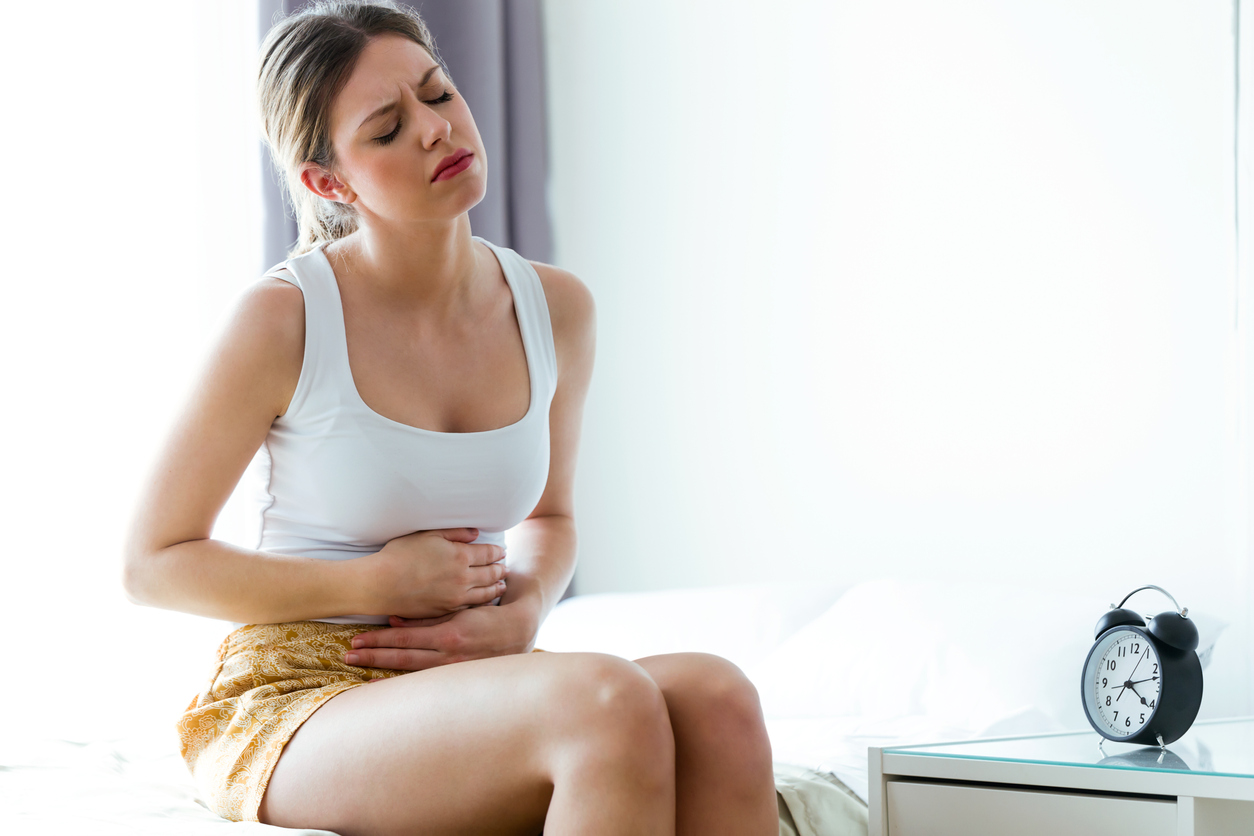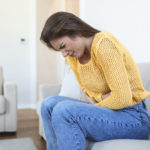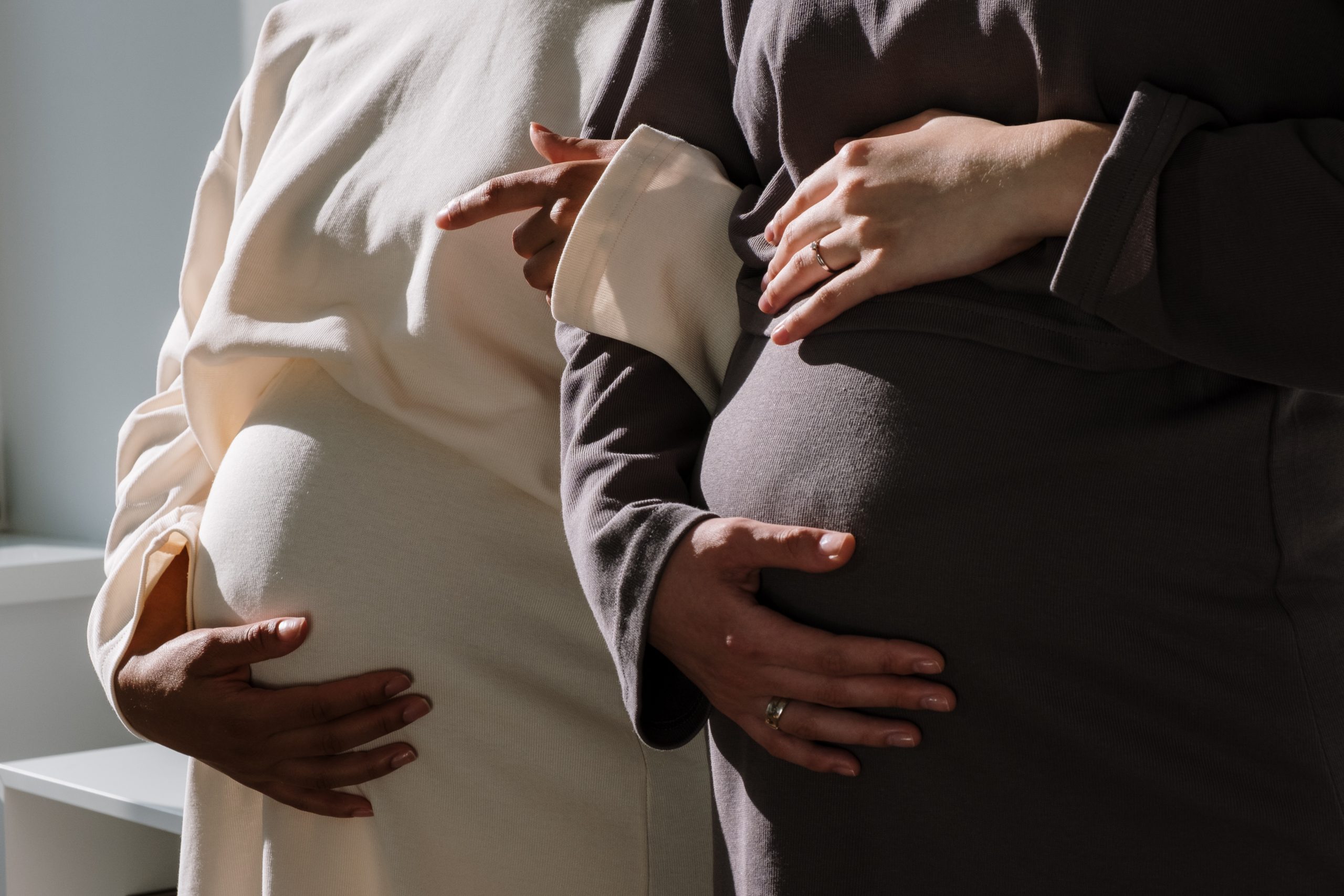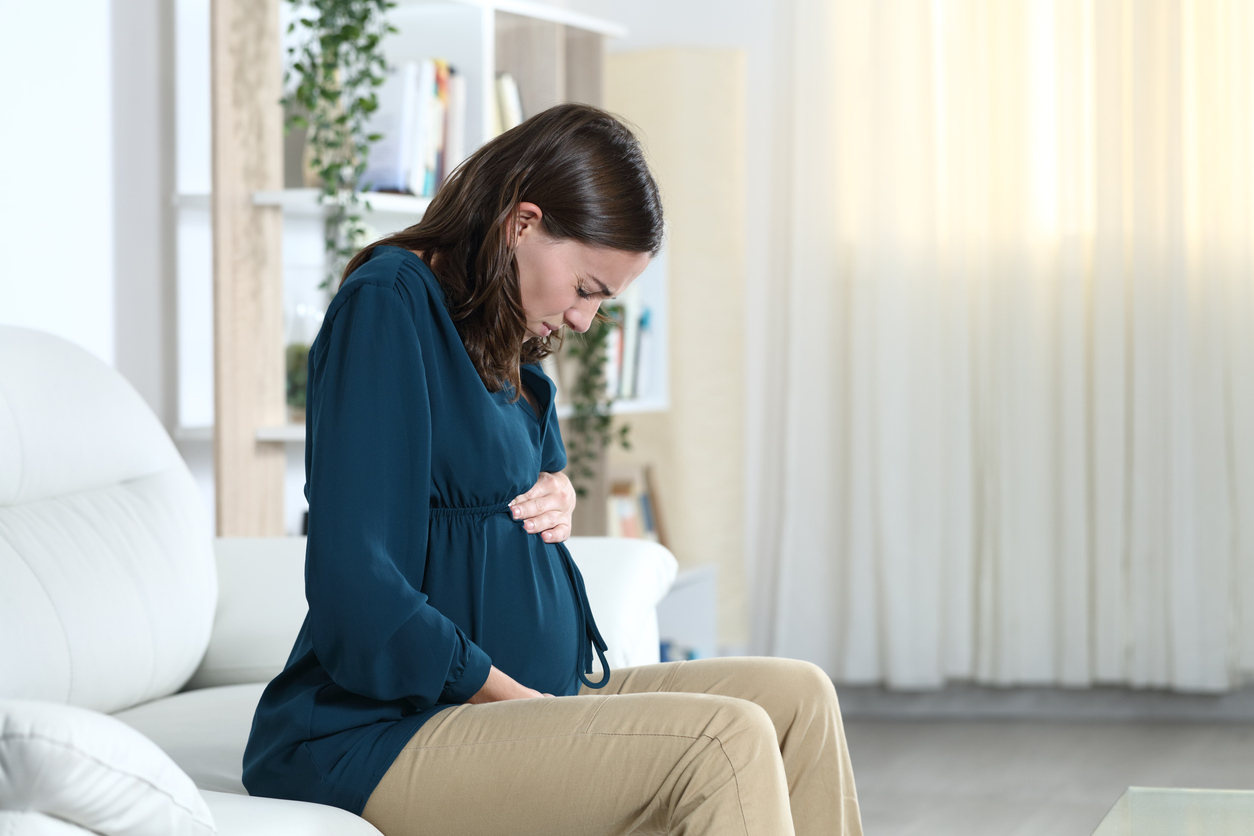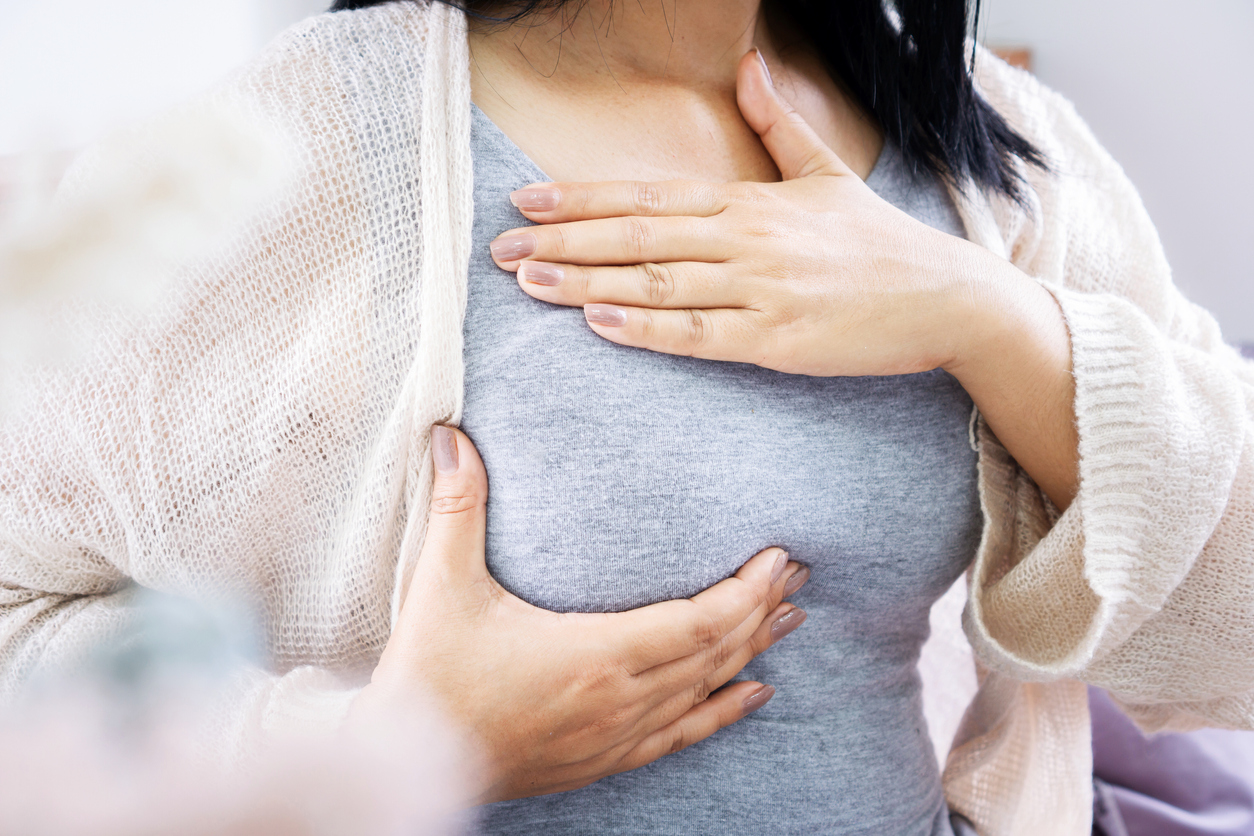Are you feeling a twinge of pain in your abdomen when you are not on your period? These cramps often get you thinking, “Am I pregnant?” Cramping can be a symptom of pregnancy. However, cramps should not be considered a sure indication of pregnancy.
Being pregnant is a special period, and almost every woman wants to experience the wonderful feeling of being pregnant. It would be an exciting but confusing stage when changes are happening in your body. During this time, every small change is noticeable and can be misinterpreted as either a healthy sign or an alarming one.
You reading this post suggests that you are one of these ladies who’re having cramps and want to make sure they are pregnant. If so, you’ve come to the right place. In this article, we will go through cramping in pregnancy and ways to relieve it.
Difference Between Period Pain & Implantation Pain
Recently, if you’ve been cramping as if you’re going to start your period and you’re just not feeling like yourself, you might wonder if this is the period pain or if you’re pregnant.
There is a possibility that it could be both, especially if you’re not using any other form of contraception. Let us guide you on this journey to discovering the actual case.
- Menstrual Cramps
Feeling cramps during your period is common. But, the intensity of pain varies from one female to another. Some may feel a mild pain that barely hinders their daily routine. However, some may feel a sharp pain in the lower abdomen that can interrupt their everyday activity. These cramps are experienced a few days before you start your period, or they may also happen during menstruating days.
Why do menstrual cramps happen? You might be experiencing throbbing pain in the lower abdomen merely because of uterine muscle contractions. Period pain, also known as dysmenorrhea, has two types: Primary dysmenorrhea and Secondary dysmenorrhea.
Primary dysmenorrhea happens due to an excess production of prostaglandins, chemicals released by the uterus to tighten or relax the uterine muscles.
Secondary dysmenorrhea happens due to other medical causes, such as endometriosis and uterine fibroids. It starts before your period and continues for a few days afterward.
- Implantation/Pregnancy Cramps
Early pregnancy signs vary from woman to woman. However, 20% of females report feeling cramps during the early pregnancy stage.
Why do implantation cramps happen? When the fertilized egg attaches to the uterine lining, you may feel mild implantation pain even after several days of ovulation. This fertilized egg becomes a blastocyte when it moves down through the fallopian tube. Now, the implantation process begins in the uterus. The blastocyte starts growing into a fetus by getting blood supply through the implantation.
Implantation cramps are usually accompanied by spotting. You may experience mild bleeding within the first two weeks after conception. You’ll know it’s not implantation bleeding because it’s lighter than period bleeding.
The key difference:
If you’re about to start a period, it would be like a dull feeling in your womb, like it’s getting heavier and heavier, going downward.
If you got pregnancy cramps, it would feel like stretching from side to side, i.e., from inwards towards outwards and vice versa, especially in your back area. It’s really like pulling side to side, as it is an indication of the expansion of your amazing uterus.
Multiple Causes of Pregnancy Cramps
- Hormones.
Your body is producing tons of hormones during pregnancy, some of which cause cramps as the body prepares to expand and change.
Every cell and organ in the body needs to adapt to the increasing demand that your pregnancy will make on it. That is the sure cause of mild cramps.
- Implantation
Women can experience implantation cramps when the newly fertilized egg is implanted into the lining of the womb. The process is accompanied by a very small amount of bleeding while the changes are happening. It causes some uncomfortable sensations, like mild cramps.
- Growing Uterus
As this stage progresses, the uterus begins to experience changes as soon as the implanted egg burrows into the lining. The uterus stretches and expands. As a result, women experience cramps. These pains can also affect the groin and the hip area.
The cramps are the major indication of change, especially in your growing uterus. This growth occurs where ligaments and muscles attach and support your womb on the internal abdominal wall. So, it is normal to experience menstrual-type cramps.
- Gas and constipation
During pregnancy, the ovary and the placenta produce a hormone called “relaxin.” It helps in childbirth by relaxing the pelvis and widening the cervix. Additionally, it also relaxes the muscles involved in food digestion.
Hence, the metabolism slows down during pregnancy. Slow metabolism causes excess gas and constipation, which ultimately leads to pain, pressure, bloating, and cramping as well.
- Sexual Intercourse
Having an orgasm during pregnancy can lead to cramps similar to menstrual cramps. Usually, this pain lasts for a short period of time, and everything gets back to normal. However, if you feel intense pain that’s not ending, you should consult a gynecologist.
When you have sex during pregnancy, the contraction of the uterus can cause cramps. Moreover, having pain after an orgasm doesn’t mean you shouldn’t have sex during pregnancy, but it can be uncomfortable for many women.
- Ectopic Pregnancy
An ectopic pregnancy is a case where a fertilized egg implants outside of the uterus, which is a serious complication. Cramping and pain may occur on either side of the pelvis and be accompanied by nausea, spotting, rectal pressure, weakness, shoulder pain, and pain in the lower abdomen area. You must consult a doctor to detect if that’s the case.
- Corpus luteum cyst
In this case, eggs from the ovaries are released and subsequently fertilized. This cyst is responsible for a hormone that is in favor of conception in the early weeks. So, this cyst plays an important role in the early weeks of pregnancy.
The corpus luteum cyst can vary in size, and the larger one can cause some tenderness and cramping. Your first ultrasound easily detects these corpus luteum cysts. Due to the presence of this cyst, the mom-to-be can feel strange cramps.
Early Pregnancy Cramping Treatments
By now, you must be sure if these cramps are early pregnancy symptoms or pre-menstrual cramps. If these are pregnancy cramps, here’s how to soothe your pain at home using simple remedies.
- Give your body some rest by lying down.
- Practice deep breathing to relax the body and mind.
- Take a warm bath to soothe your pain.
- Make sure to drink plenty of pure water.
- Place a warm water bag on the area of pain.
- If nothing helps, consult a gynecologist.
Wrapping Up
Cramps can be a symptom of pregnancy. However, do not make a conclusion before a thorough examination. If you feel pain in your lower abdomen and your womb feels like it’s getting heavier, it’s menstrual pain. If you feel your uterus stretching side to side, it’s a pregnancy symptom.
If your symptoms are persisting and getting worse even after applying the above-mentioned treatments, you should consult a gynecologist immediately. After asking you more specific questions, they can consult on proper treatment and decide if further investigation is necessary.
Good luck!

